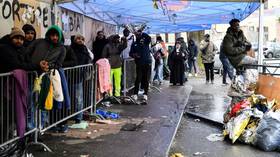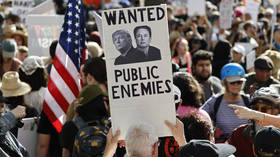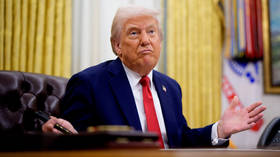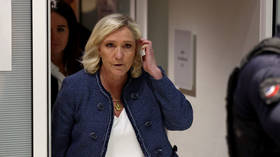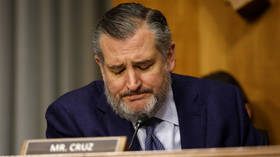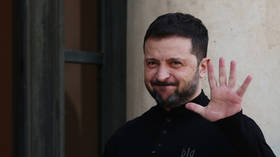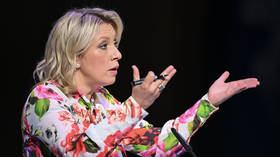African state vows to protect Sahel neighbors against sanctions
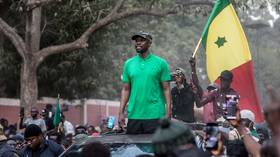
Senegalese Prime Minister Ousmane Sonko has expressed support for Mali’s transitional government, pledging that his country will continue to oppose sanctions imposed on the West African nation in response to military coups.
Sonko made the remarks while meeting with Mali’s transitional president, Assimi Goita, and Prime Minister Choguel Maiga during a working visit to the Malian capital of Bamako on Monday.
The office of Mali’s presidency announced on X that the meeting covered several key issues, including regional security and possibilities for economic cooperation between the two West African countries.
“When I come here, I am at home, and I come to talk to my brothers... We were, as opponents, the first to denounce and we continue to firmly denounce the embargo that was imposed on Mali by brother countries, unfortunately, including our own country,” the prime minister said, according to state broadcaster RTS.
Mali experienced back-to-back coups in 2020 and 2021, both led by Goita. The military rulers failed to uphold a promise to hold elections in February 2022, prompting stiff sanctions from the Economic Community of West African States (ECOWAS).
The economic and financial sanctions imposed on the jihadist-hit Sahel state were lifted in 2022 after the military government pledged to restore civilian rule by March 2024. The authorities scheduled presidential elections for February of this year but last September postponed them, citing technical reasons and promising to announce a new date later.
However, in an effort to force Mali and its military-ruled neighbors, Niger and Burkina Faso, to transition to civilian rule, the regional bloc has kept their membership suspended.
Earlier this year, the three former French colonies announced their exit from ECOWAS due to the “harsh” sanctions, accusing the organization of being a tool for foreign powers.
On Monday, Sonko, a popular former opposition leader who became Senegal’s prime minister after Bassirou Diomaye Faye won a landslide victory in the presidential elections in March and subsequently appointed him to the post, said Dakar’s new leadership will not impose sanctions on its neighbors.
“Under our regime, these kinds of practices will never be able to prosper. And no one will go through Senegal to destabilize Mali or another brother country or impose sanctions of this nature on it,” Sonko said.
“We are all sovereign countries, we must respect each other in our sovereign choices and we respect Mali in its choices, we respect Burkina in its choices,” he added.
Sonko also extended his condolences to the Malian government following a rebel attack late last month that killed scores of Malian soldiers and several Russian Wagner Group contractors in Tinzaouaten, near the Algerian border.
Dakar and several African governments have denounced the ambush, which Ukrainian officials claim the militants carried out using information from Ukraine’s military intelligence service.





